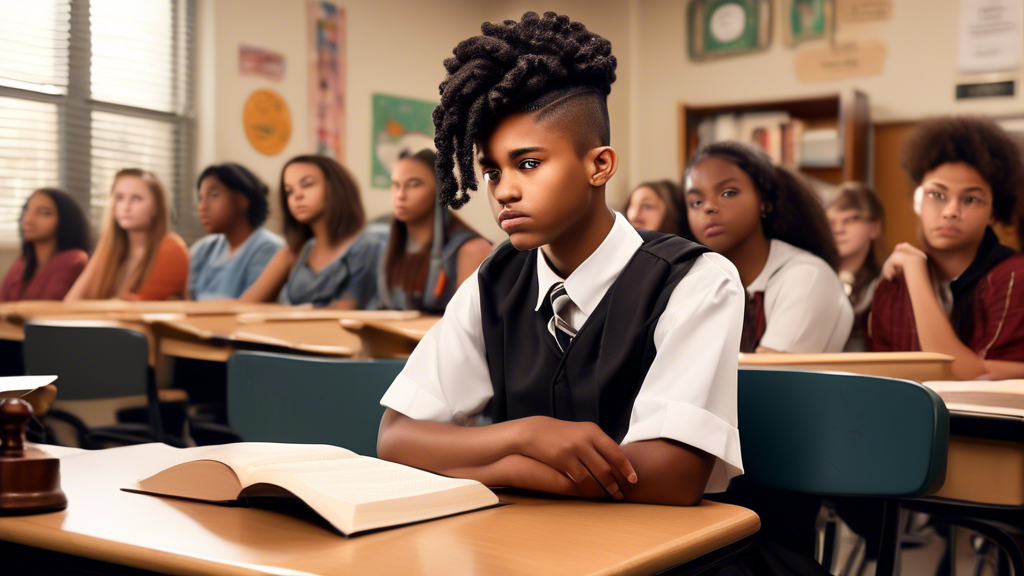
Judge Rejects Request from Black Student Disciplined for His Hairstyle
A federal judge has denied a request for a temporary restraining order from Darryl George, a 19-year-old Black high school student who faced disciplinary action over his hairstyle. This case has ignited discussions on racial and gender discrimination within school dress codes in America.
Student’s Hairstyle and Punishment
Darryl George, a former student at Barbers Hill High School near Houston, Texas, was subjected to punishment for sporting his hair in tied and twisted locs. The school district maintained that this hairstyle breached their dress code policy, which stipulates that hair must not extend below the shirt collar, eyebrows, or earlobes when let down.
Legal Action
After leaving the school at the start of his senior year due to the ongoing disciplinary actions, George sought legal recourse by requesting a federal court order to prevent further punishment upon his return. However, U.S. District Judge Jeffrey Brown declined this request, noting that both George and his legal team had delayed in seeking the order.
Racial and Gender Discrimination Claims
In response to his treatment, George and his mother filed a federal lawsuit alleging racial and gender discrimination against the school district. While Judge Brown chose to dismiss most of these claims, he allowed the gender discrimination component to proceed. The lawsuit also invoked the CROWN Act, a Texas law designed to protect against discrimination based on race or hairstyle, including locs, braids, Afros, and other protective styles.
School District’s Defense
The Barbers Hill Independent School District defended its dress code, asserting that it aims to foster grooming and hygiene, instill discipline, avoid disruptions, mitigate safety hazards, and cultivate respect for authority. A previous ruling from a state judge corroborated this stance, concluding that the district’s disciplinary actions did not contravene the CROWN Act.
Student’s Well-being and Transfer
The pressure from the disciplinary actions reportedly took a toll on George’s mental health, leading him to transfer to another high school in a different district after experiencing a nervous breakdown. The school district argued that George lacked legal standing for the restraining order since he no longer attended their school.
Judge’s Ruling and Its Timing
The ruling from Judge Brown was delivered on George’s 19th birthday. He indicated that the school district had a stronger position regarding the remaining claim related to gender discrimination.
This case continues to shed light on the complex interplay of race, culture, and educational policies, reaffirming the necessity of dialogue around inclusivity in school environments.
